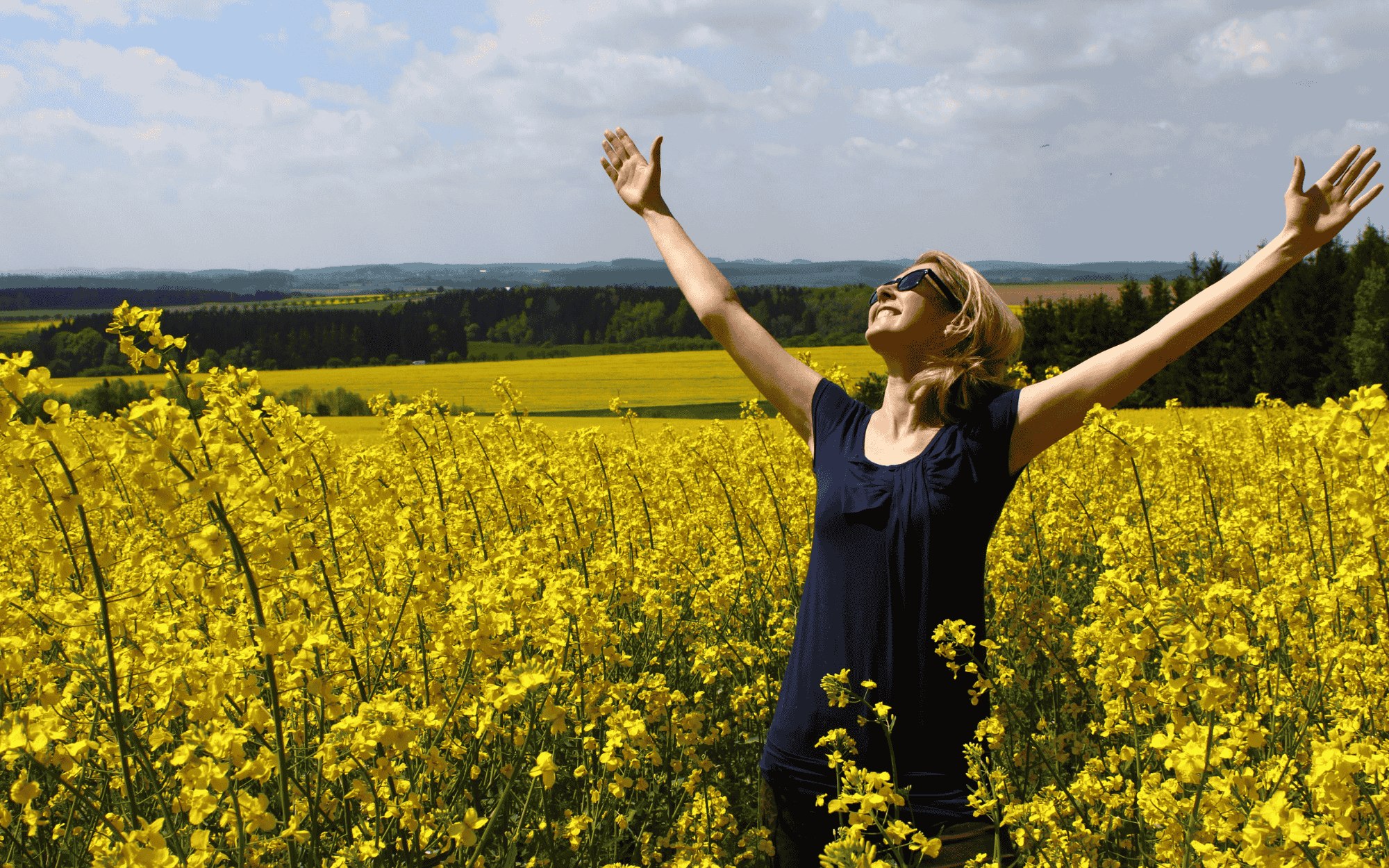
In our quest for better health and happiness, we often focus on physical well-being — exercising, eating right, and getting enough sleep. While these are vital, we sometimes overlook one powerful and accessible tool that nurtures our emotional well-being: gratitude.
Gratitude is more than a positive feeling; it’s a way of experiencing life that transforms emotions, builds resilience, and fosters joy. It’s about appreciating the people, moments, and experiences that add meaning to our lives.
As mindfulness teacher Thích Nhất Hạnh beautifully stated:
“When you are grateful, you are not fearful. When you are grateful, you are not angry. Instead, you are open to all the beauty life offers.”
This day, let’s explore how practicing gratitude positively impacts our emotional health and why it’s a vital part of your self-development journey.
The Impact of Gratitude
1. Gratitude and Emotional Well-Being
Our emotions are shaped by how we perceive and respond to the world around us. Gratitude acts as a lens, helping us focus on the positives in our lives instead of dwelling on what’s missing or wrong.

When you practice gratitude regularly, you experience:
- Greater happiness: Recognizing the good around you boosts feelings of contentment and joy.
- Less stress and anxiety: Gratitude calms the mind, reducing overwhelming feelings of worry and frustration.
- Stronger resilience: Gratitude helps you reframe setbacks and navigate challenges with optimism and perspective.
Research consistently supports this. A study published in the Journal of Personality and Social Psychology found that people who regularly practiced gratitude reported higher levels of positive emotions, satisfaction, and overall well-being.
Gratitude doesn’t change your circumstances; it changes how you feel about them.
2. How Gratitude Reduces Negative Emotions
Negative emotions like anger, envy, and resentment can weigh us down, leaving us emotionally drained and stuck. Gratitude provides an antidote to these feelings. By focusing on what’s good, you shift attention away from bitterness and dissatisfaction.

Let’s break it down:
- Anger: Gratitude helps you pause and reflect on what’s going well instead of reacting in frustration.
- Jealousy: When you appreciate what you have, comparison loses its power. Gratitude creates contentment.
- Sadness: Gratitude reminds you of life’s blessings, no matter how small, offering comfort during tough times.
As writer Roy T. Bennett said:
“Be grateful for what you already have while you pursue your goals. If you aren’t grateful for what you already have, what makes you think you would be happy with more?”
Gratitude doesn’t dismiss negative emotions — it helps you process them with clarity and perspective.
3. Gratitude Builds Emotional Resilience
Life is unpredictable. Challenges, disappointments, and setbacks are part of the human experience. The difference between surviving and thriving often lies in how we respond emotionally. Gratitude builds resilience by helping us see beyond temporary struggles.

For example, during difficult times, you can ask yourself:
- What lessons can I learn from this experience?
- Who has supported me through this?
- What is still good in my life despite this challenge?
By focusing on the positives, gratitude helps you bounce back stronger and more determined.
Psychologist Robert Emmons, a leading researcher on gratitude, explains:
“Gratitude allows us to celebrate the present, reduces toxic emotions, and strengthens our ability to handle adversity.”
When you embrace gratitude, challenges become opportunities for growth rather than overwhelming obstacles.
4. The Role of Gratitude in Strengthening Relationships
Our emotional health is deeply tied to the quality of our relationships. Gratitude strengthens these connections by fostering appreciation and trust.
Think about the last time someone expressed genuine thanks to you. It likely made you feel valued and seen. The same is true when you express gratitude toward others — it deepens bonds and creates positive emotional energy.

Here’s how you can use gratitude to nurture your relationships:
- Say thank you more often: Whether it’s to your partner, a friend, or a colleague, express appreciation for their efforts and presence in your life.
- Write a gratitude letter: Reflect on someone who has positively impacted you and share your appreciation through a thoughtful note.
- Focus on the good: When frustrations arise in relationships, shift focus to the qualities you admire in the other person.
Gratitude fosters connection, empathy, and understanding — key ingredients for emotional well-being.
As Dr. John Gottman, a renowned relationship expert, notes:
“The healthiest relationships are built on appreciation and gratitude.”
5. Gratitude Encourages Mindfulness and Presence
Gratitude invites you to slow down and fully experience the present moment. In our busy, distraction-filled lives, it’s easy to overlook the simple pleasures around us.

When you pause to appreciate the warmth of the sun, the sound of laughter, or the comfort of a good meal, you create moments of mindfulness. These moments ground you, calm your mind, and bring emotional clarity.
A daily gratitude practice helps you develop this presence over time. You become more aware of life’s beauty and less consumed by worries about the past or future.
Poet Rumi captured this beautifully:
“Be grateful for your life, every detail of it, and your face will come to shine like a sun, and everyone who sees it will be made glad and peaceful.”
When you’re present, gratitude flows naturally — and emotional balance follows.
6. Simple Ways to Incorporate Gratitude into Your Life
Gratitude doesn’t require grand gestures; it thrives in small, intentional moments.

Here are a few simple ways to practice gratitude:
- Morning Reflection: Start your day by reflecting on three things you’re grateful for.
- Gratitude Journaling: Write down positive moments from your day, no matter how small.
- Express Thanks: Take a moment to thank someone — through words, notes, or kind actions.
- Gratitude Walk: Go for a short walk and notice things around you that bring joy — nature, people, or simple moments of peace.
- Evening Pause: Before bed, reflect on one moment from the day that brought you joy or comfort.
The key is consistency. Small, daily acts of gratitude compound over time, creating lasting emotional shifts.
7. The Ripple Effect of Gratitude
The emotional impact of gratitude doesn’t stop with you — it ripples outward. When you live with a grateful heart, your positivity, kindness, and perspective inspire those around you. Gratitude creates a cycle of emotional well-being, benefiting individuals, families, and communities.

Imagine a world where we all took a moment each day to express appreciation — for life, for others, and for ourselves. How much brighter would that world feel?
As author G.K. Chesterton wrote:
“The test of all happiness is gratitude.”
Happiness begins with appreciating what’s already yours.
Your Challenge for Today
For today’s challenge, commit to embracing gratitude as a tool for emotional wellness. Try the following:

- Write a Gratitude List: Jot down five things you’re grateful for today.
- Express Appreciation: Reach out to one person and let them know why you’re thankful for them.
- Reflect on a Challenge: Think of a recent difficulty and identify one lesson or positive outcome it brought you.
By making gratitude part of your day, you’ll experience greater emotional balance, resilience, and joy — one mindful moment at a time.
Gratitude is powerful because it shifts how we experience life. It calms the storm of negative emotions, nurtures relationships, and invites peace into our minds.

Take up the challenge today. Pause, reflect, and choose gratitude. Your emotional well-being will thank you.
So, what are you grateful for today?





